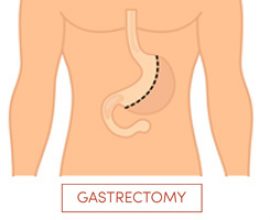When Gastric Sleeve is Medically Necessary

Approximately one-third of American adults are considered obese. While bariatric surgery can be a lifeline for individuals who have been unable to lose their excess weight through conservative means, it is not appropriate for all patients. Since gastric sleeve and other bariatric surgeries involve significant and typically permanent changes to the digestive system, bariatric surgeons use the concept of medical necessity to determine if an individual is a suitable candidate for the procedure.
When Is Bariatric Surgery Medically Necessary?
Because weight loss surgery is not intended to be an initial treatment for obesity, most surgeons and insurance companies follow the guidelines set forth by the National Institutes of Health in determining if gastric sleeve or other bariatric surgery is medically necessary. Bariatric surgery may be an option for individuals who:
- have a body mass index of at least 40, or
- have a body mass index of at least 35 along with an obesity-related health condition, such as heart disease, sleep apnea, or diabetes.
Teenage patients who have gone through puberty and reached adult height may meet medical necessity guidelines if they meet the following criteria:
- a body mass index of at least 35 along with a serious obesity-related health condition, such as diabetes, or
- a body mass index of at least 40 with high blood pressure, high cholesterol, or another less severe obesity-related health problem.
In addition to the medical necessity requirement, patients normally have to show that they have made a serious attempt to lose the weight through non-surgical means, such as a medically supervised diet. The American Heart Association recommends that patients participate in a supervised weight loss program for at least 6 months before considering bariatric surgery.
Making the Commitment
Patients undergoing bariatric surgery should think of the process as a marathon rather than a sprint. Patients must understand that their eating and physical activity patterns will change following the surgery. To ensure the best possible results and prevent complications, patients must follow specific diet and exercise guidelines for the rest of their lives and follow-up with their doctor on a regular basis.
Related Posts
5 Risks of Obesity
How Sleeve Gastrectomy Works
The Advantages of Orbera
Are You a Candidate for Sleeve Surgery?
Contact Info
3420 Bristol St #700, Costa Mesa, CA 92626, USA
Orange Location
1310 W Stewart Dr. Suite 310, Orange, CA 92868, USA
*DISCLAIMER
In compliance with 16 CFR 255 and Federal Trade Commission Guidelines on the use of endorsements and testimonials in the marketing and advertising of websites:
The testimonials, statements, and opinions presented on our website are only applicable to the individuals depicted, and may not be representative of the experience of others. The testimonials are voluntary provided and are not paid, nor were they provided with free products, services, or any benefits in exchange for said statements. The testimonials are not indicative of future results or success of any other individuals. South Coast Specialty Surgery Center cannot and does not guarantee the medical outcome or the results of individuals utilizing the services provided by us or the providers in our network, or from any of the websites we link, or refer to. The testimonials and endorsements found on the site for the benefit of the site or individual services or procedures are, to the best of our knowledge, the true statements and beliefs of the individuals providing them. In short, surgery involves risk, results may vary, and outcomes are not guaranteed.
Some pages of this website may feature a depiction of a model showing emphasis of the torso. Product names may be mentioned in testimonials or elsewhere, and are trademarks or registered trademarks of their respective holders. Please refer to our Terms and Risks of Surgery pages for more information. Gastric Sleeve Surgery Centers performs Gastric Sleeve Surgery in Orange County, San Diego, Los Angeles, Riverside County and other location in Southern
California.




